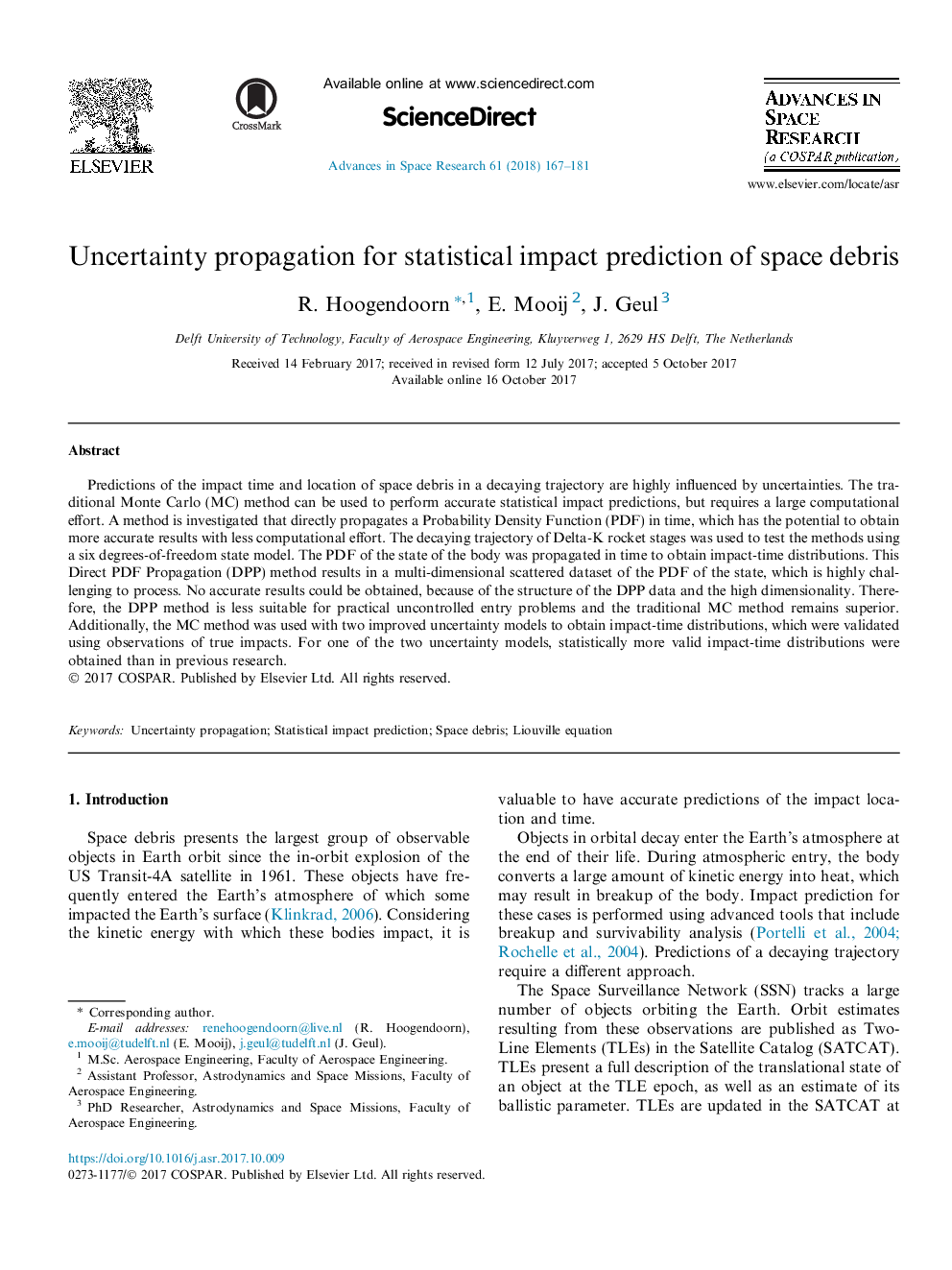| Article ID | Journal | Published Year | Pages | File Type |
|---|---|---|---|---|
| 8132389 | Advances in Space Research | 2018 | 15 Pages |
Abstract
Predictions of the impact time and location of space debris in a decaying trajectory are highly influenced by uncertainties. The traditional Monte Carlo (MC) method can be used to perform accurate statistical impact predictions, but requires a large computational effort. A method is investigated that directly propagates a Probability Density Function (PDF) in time, which has the potential to obtain more accurate results with less computational effort. The decaying trajectory of Delta-K rocket stages was used to test the methods using a six degrees-of-freedom state model. The PDF of the state of the body was propagated in time to obtain impact-time distributions. This Direct PDF Propagation (DPP) method results in a multi-dimensional scattered dataset of the PDF of the state, which is highly challenging to process. No accurate results could be obtained, because of the structure of the DPP data and the high dimensionality. Therefore, the DPP method is less suitable for practical uncontrolled entry problems and the traditional MC method remains superior. Additionally, the MC method was used with two improved uncertainty models to obtain impact-time distributions, which were validated using observations of true impacts. For one of the two uncertainty models, statistically more valid impact-time distributions were obtained than in previous research.
Related Topics
Physical Sciences and Engineering
Earth and Planetary Sciences
Space and Planetary Science
Authors
R. Hoogendoorn, E. Mooij, J. Geul,
